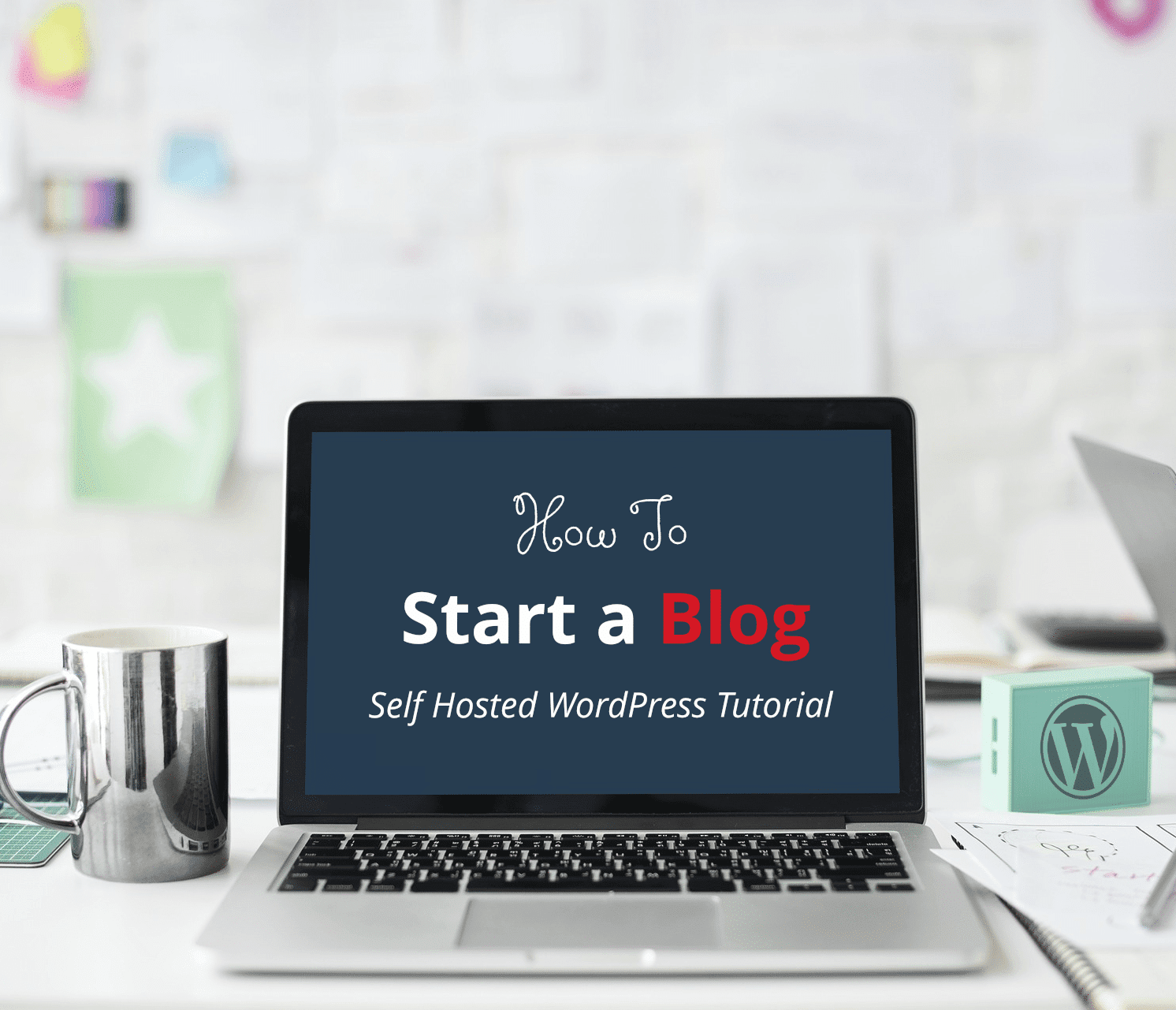Dear Reader,
Even wanted to take an ordinary blog, or online business, and covert it into a brand?
Have a knack for cooking, or travelling, and even an online presence, but don’t know where to go now?
In this (long overdue) post, I’d like to show you exactly how I used simple things at our disposal, like domain names, logos, social media, missions statements, and more, to convert a standard WordPress blog into a fairly recognized name in blogging.
If you’re ready, read on. This could change a lot.
This is a long post
Apology: I’m going to be pretty long-winded here, especially when I talk domain names. The reason is, I have a lot to say. You probably know by now that I love brevity, but I just wouldn’t be able to sleep at night if I made this post a quick one. I’m sick of lame branding guides. Fluffy nonsense telling you to start a Facebook page, and get setup on LinkedIn. I know you want more. You want to create a brand for yourself that actually stands out, gets traffic to your site, and says something bold. And you can. You really can. They don’t call this the Golden Age of Publishing for nothing. If you’ve got a little dose of persuasiveness, a hint of creativity, you can do a whole lot in the world of online branding. So, sit back, grab the coffee, and dig into my first official post on branding…
Understanding what a brand is
I figured this basic question was a good place to start. What is a brand?
I pulled up Google Keyword Tool, which is usually how my posts begin, and type this phrase in.
BAM. 24,000,000 others were searching “What is a brand” each month. Every month?! That’s a lot of people curious about branding, and also a pretty darn good phrase for my permalink 😉
Anyways, good ol’ Google told me this:
“A brand is a type of product manufactured by a company under a particular name” – Google
I mulled this over for a while, then realized the operative word here is “product”.
Forget about the “company”, forget about the “particular name”.
Forget about the darn fluff, because it’s the product that keeps people coming back for more.
All the great companies and names you think of, say Folgers, Sony, Adidas, you name it, they all started with a great product, and that’s why we love them. I don’t care that the Adidas logo is cool, I care about those Stan Smiths I had back in the 4th grade that could withstand ANYTHING. Those shoes were my life, my identity.
So back to the point guys, defining your product is a good place to start as you build your brand. Ask yourself these questions:
- What product do you provide?
- Who wants it, is there demand, and what’s the audience?
- How is it different?
That’s a lot right there. Let’s take DearBlogger.org for example:
I provide: Blogging answers for free
My audience: Up and coming bloggers
How am I different: I don’t know anyone else providing blogging answers like this, do you?
Pretty decent answers if you ask me 🙂 They’ve been good enough to get this blog off the ground and into the, well, more fun parts of the blogosphere.
That last question is tricky though.
“How am I different”…Heck, this question can stop most of us in our tracks, and prevent us from even beginning our million dollar ideas! You see some bloke doing the same thing, way better, way further along, and sit back on your couch all depressed.
But ya know what, that bloke wasn’t the first on Pilgrim’s Rock. Not at all.
I’d actually bet you a whole lot of money that someone else out there is providing blogging answers right now, just like me, just in a different way.
Do you think that stops me, NO! Heck no. It doesn’t even matter!
It doesn’t matter if someone is already doing what you’re doing, because the web is a consumer choice environment. If 4 different parties all sell shoes, say, Stan Smiths, you can be the 5th to sell those shoes too. You might even be the 100th.
And, you’ll sell if people like you. If your name comes to their mind when they think “I need some shoes.”
The point is, when considering your brand, and when building yourself up from scratch like I did, it’s way more important to look at what YOU can offer, than looking at what the other guys already offer.
Because you can offer a lot, and who the heck cares if you’re just starting out.
Can you as one person be a brand?
The thing many bloggers and writers in general don’t realize, is that you don’t have to pretend to be some company to define yourself as a brand. You don’t have to write “we” when it’s just you over there at your little laptop.
Like I said above, a brand that is just you is totally okay.
Most brands do just start as one person with an idea (think Apple). That company would be nowhere without the stubborn determination of Steve Jobs.
Here are some general rules that will help you stick to principle when building your brand on your blog:
Anytime you can write your story, do so
Tell your readers about your life, your struggles, your history in your niche. Be honest and how weakness. Let them know you’ve overcome hurdles and have been faced with as many struggles as you have successes. This builds a personal rapoore with your audience.
Include real pictures of yourself
Use real images of yourself on the blog, be open. Don’t expect people to know you and assume you’re a cool brand just because you think so. Instead, convince.
Avoid contact forms
I hate contact forms. I usually wonder, do you really take yourself so seriously that you can’t put a nice email or some other form of personal networking on your own blog?
You can easily to all this if you run a blog or have full control of a website. Ehem, self-hosting anyone?
Creating the perfect domain name
Now for the part I promised (warned) would be really, really long.
It’ll be worth it.
A great domain name is essential to an online brand, because it’s what we remember, what we type in, and the first phrase we associate with your company.
Now, you guys often ask me “how do I create the perfect domain name” and my response is this. Select from the 5 criteria, and try for all of them:
- Keywords
- Catchiness
- Brandability
- Exact match domain (EMD)
- Buyer’s phrase
That, and it’s best to choose a .com, .org, or .net if possible, because these are standards conventions consumers have grown used to.
Now let’s break the list down into what each of these words actually mean.
Choose good keywords
Keywords are anything that really define your niche. If you blog about food, for example, these words could be things like “eat, meal, fare, or just food”. Putting them in your domain name is a good idea because it tells people what your niche is, and it tells Google. Google looks really closely at a domain name, and at entire links, when it tries to return the right search result to a user. So if you people searching “delicious food in nyc”, then including those words in your domain name is smart.
DearBlogger.org has keywords in it, both the word “blog” and “blogger”. I didn’t want to go so far as to include “answers” or “community” in my domain name, that would have been too long. The “dear” part adds a friendly vibe, and the .org says community. So, that’s my rationale for you on a silver platter.
Make it catchy
Catchiness means people hear your domain name a few times, then think “Hey, I’m into that!” Think about “YouTube” for example. What did you first think when you heard of this “YouTube” place? It sounds bogus to me. A Tube…for me, and my videos? Why would I want to put video on the web, and isn’t that like really complex? Anyhow, YouTube spoke volumes to a lot of people. It’s utter simplicity, quirkiness, and catchiness seriously worked long term.
Brandability
Brandability is a tough criteria to nail down. Why is this? Because sometimes domain names look really awkward at first, but actually hold tremendous brandable power. It’s only after you see them, and hear them, and have a whole marketing team put them out into the web, that this brandability becomes apparent.
Check out Twitter’s Wikipedia page, for a little blurb on brandable domains. In the History section, read how Jack Dorsey came up with “Twitter”.
Using exact match domains (EMDs)
Now, if you’re wondering “which domains rank best for SEO?” then here’s your answer. Exact match domain names still rank the best for SEO. Despite Google shifting of the algorithm to place less value on the keywords in a domain name when returning a Search result, exact match is still your best bet for SEO.
Now, warning, I’m going to digress into a bit of a high level 😉 explanation…
From Google’s standpoint, a domain name containing the exact words in your search query may be exactly what you want. Say you Google “Seamless”. You’ll get Seamless.com as #1. How about Googling “Home Depot”? You’ll surely get HomeDepot.com.
You get a domain name that has your search terms in it as the number #1 result, because domain name is one of the first thing Google examines for accuracy.
Thus, whoever realized EMDs were so powerful was a genius. The strategy goes like this:
- Find a phrase LOTS of people search, like “olympics final what time” or “best places to eat in new york” or “cure depression” or “get a promotion” and go and register those exact words in a .com.
- Then, build some SEO around the domain name with backlinks, social media, etc.
- Now, hopefully when someone searches “cure depression” they’ll get your site, curedepression.com, instead of a more reputable source, like maybe psychology.com, or even ask.com.
- The idea is to get #1 is Google Search, and milk traffic that searches an exact phase
As I mentioned above, Google caught on that people were doing this, and lowered the value they place on the words within your domain name when trying to return the most relevant Search result.
So, EMD isn’t as powerful, but still a good technique to employ, at least partially, in the selection of your domain names.
What are buyer’s phrases?
Now, let me introduce you to something called the “buyer’s phrase”. A buyer’s phrase is a search phrase buyers are searching. Ha, duh.
Something like “get a Kindle” is a buyer’s phrase because the person searching plans to make a purchase at some point during their visit. “Cure depression” isn’t likely to be a buyer’s phrase, unless there’s a new drug on the market that person is looking for.
Combining the last two topics…
Exact match domain + buyer’s phrase = profitable website
That is, if you know how to create good landing pages. Good landing pages will convert your random visitors in subscribers, paying customers, or whatever it is you really want.
Now, I can here your grumbles. Why didn’t I know this years ago? And it’s true, if you had had this information 10 years ago, you would have stood to make a lot of money. The web was wide open back then, and not so much anymore.
But, the neat thing about domain names is there are an infinite amount of them. Even if you don’t find you .com, choosing a .org or .net is just as good for SEO. Google won’t hold that against you.
You just have to hunt a bit more today than you might have 10 years ago.
Write up a mission statement
Mission statements are sort of like cover letters. As a brand, a business, you have to have one. But, you can either create a crummy on that just takes up space on the web, or you can really make a good one that tells people you actually care. I know, sounds cheesy? It’s not.
Here are some mission statements from brands I support:
I’ll admit, a lot of major company’s mission statements are total copywritten nonsense – words that hold little meaning. But it’s still fun to see what might have gone on in the brains behind a company’s PR efforts. That, and the buzzwords companies use might be helpful to you.
Go try to write out your own mission statement. It’s tough, guarantee you’ll crumple up the proverbial piece of paper at least a few times. But it’s a good exercise to learn why you do what you do. When it’s done, water mark it with your logo (hint: alter the opacity).
Design a simple logo
I get a lot of of questions on whether this logo looks good, or that logo is better.
Disclaimer: I’m not a logo designer.
While I can use Adobe CS better than the average bear I’m by no means a professional. But, as with most things, I know a few steadfast principles to adhere to with you logo:
Here’s what I know works for logos:
- Simple: Don’t over complicate with lines, shapes, and other confusing objects. Many major blogs and publication us alphabetic logos, where all there is to the logo is one letter, a box, and a bit of color and styling. And it works great.
- Motif: Pick an item you mention in your writing. I talk a lot about coffee, caffeine, blogging all-nighters…so the coffee cup works well.
- Repetition: A logo needs to be seen several times to sink in with a user. Most logos are socially rejected at first, then gradually gain acceptance. Think Twitter again, or maybe Nike.
That should be more than enough to get you started. Additionally, don’t feel rushed on the logo thing. It’s better to not have a logo and focus on content, then put one up once its ready, than to rush a logo into it’s awkward existence.
Develop your content style
Style of course is something else we all need, but it doesn’t come right away.
Michael Jordan didn’t release the Air Jordans before dominating the court with the Chicago Bulls for 7 years, and nobody knew Mark Zuckerberg had swagger until he had his own movie. That was a joke.
Style for us bloggers takes a few forms, but here’s how to begin developing style.
♨ How to develop style: Start with some bold trial and error. Try different fonts, post lengths, and titles. Call your work something different (I call my blog posts entries sometimes) and make sure your readers see you in a unique light. Once you’ve tried about 10-20 different strategies, evaluate what worked and try to tighten things up. Do more of what worked, and cut off the ideas that didn’t connect with anyone.
Again, be open to trial and errors and be experimental. Your style will follow, trust me.
Working out a social media game plan
Socia media will be one component of your branding that takes time. It’s unfortunate actually, the Facebook pages that starteD at the boom of Facebook pages had a much easier time getting likes than the rest of ours. I’ve actually spent zero time building this blog’s Facebook presence in the interest of more important social proofing factors, but hey, good things come with time.
Here are three things you should focus on with social media:
Keeping your brand messages consistent
I’d like to sort of cap this post off with a message about consistency. Being consistent with a message, a product, a brand, is often the key to it’s ultimate success.
Brands are born to be contested. No major brand we know of today started out a household name. People are skeptical, negative, and counter culture.
But by being both consistent in your brand and confident it will make it through (hey, haters are a good thing) you stand to really take any idea to…
Who knows?
End with an awesome short video
It’s a pretty fantastic branding video, with cool facts about many companies we basically worship with our dollars.
Sorry again for the whole long-winded thing, but I hope it was worth it.
Now, get out there and start branding whatever you make online.
And to the comments!
Welcome to my First Blogging Bootcamp. Click the link to read more from this series.






Wow, Greg, as always you have shaken my mind blowing! Thanks for the very detailed and conrete guide to domain, keywording as well. Thanks a zillion
Thanks Abdul, great to see ya back!
Yeah the domain/keyword section was something readers really asked about so I tried to go in-depth.
Great post indeed,
In simple brand is the name which define the true identity of a blog or something. So online branding is essential to standalone and make some good reputation.
thanks
Thanks Sarvesh, nailed it!
Hi Greg !
Thank you for this excellent post. i agree with the key point the build a unique brand Like KFC or McDonald etc. Blogging is a profession and have to establish a strong brand network for blogging success.
Thanks for the comment Myhox!
Dear frogger,
fuck i ment blogger.
And the first curse word on the blog goes to…
Nice Site …Nice Article will bookmark this
Thanks for the info will bookmark
good article good site
Bookmark bookmark bookmark. I want it at the #1 bookmark spot Jacquelyn 🙂
Great advice. Now I have to sit down with a cup of coffee and think about everything you said.
Eh, you could just watch the video 🙂
But the first few sections are really good. Lemme know what you think.
This is an interesting topic for me — when I first started blogging it was all about me *grin* and then I realized I could help others.
I blog about special needs parenting, but when I was first starting out I wanted a place where I felt at home, where others felt at home talking about special needs parenting and diagnoses – so Kat’s Cafe was born.
When I say it was all about me – it was! It was a place I could share the bad days and the great days and then try to make sense of everything in between.
There is no SEO power in that domain name but I love it – it’s me, it makes you think of that cafe atmosphere. But it says nothing about special needs parenting.
I was able to purchase a great domain for SEO recently, specialneedsonline.org – but I don’t want to leave my Kat’s Cafe behind so it’s still just a dream of sorts.
We won’t even talk about my professional side (and domain, lol).
I wonder how many bloggers start out blogging for themselves these days though? Am I a dying breed? *cheesy grin*
Seems like you’ve got the personal and business side of blogging figured out Katrina! Checked out the Cafe, great stuff. But hey, you stole my coffee theme! 😉
LOL – I had a lot of fun creating my own coffee cup – it’s the same size as my favorite big cup! You ever decide you want coffee cup icons for your site let me know and I’ll do a mini-customized set for you from my own template if you want! 😉
This post has led me to change my blog design and everything
I’m pretty persuasive huh Dinesh. Hope it all goes well.
Incredible post Greg. A lot to learn, this is something I will definitely bookmark for future reference.
Question 1: If I’d decide change my blog’s domain name. Will you suggest me to take an action like this?
Question 2: If so, do you have some my niche related (blogging) brandable+SEO friendly domain name idea in your mind?
Looking forward to your reply.
Ehsan
Definitely…
BUT! My best advice is keep Guide And News intact, and start a new blog. Lots of reasons for this, but mainly a motivating fresh start and you can link your new blog from GandN to get the SEO and PageRank going.
What do you think?
On Question 2….
What sorts of ideas/concepts will your new blog use? Give me a quick list, then we can brainstorm 🙂
It took months of hard work and effort to take GAN where it is now. I’ll be died if I start another blogging blog from scratch 😀
One more thing, I’m in love with the design and content of GAN, so If I start another one, I’ll lose focus to it. God, I wish I had chosen a good brandable domain name for my blog. Everything else is just perfect.
And Greg, If I’d ever decide to start another blog, it won’t be on blogging niche 🙂
Lol.
How did you choose “Guide and News” anyways Ehsan?
And what other niches interest you? Very curious.
When I registered my domain name, I didn’t have much knowledge of blogging Greg. I registered it just because I wanted to get online.
Do you know that a few weeks ago Bamidele Onibalusi of YoungPrePro also changed his blog’s domain name from YoungPrePro.com to WritersInCharge.com because of the same reason. Now If you go to YoungPrePro.com you’ll be redirected to WritersInCharge.com.
I sent him en email asking the reason of doing it, he said that I run a writing blog, but the domain name YoungPrePro was confusing to a lot of people, so I changed it to look more professional. This one also communicated clearly that the blog is about writing.
Now, what If I do the same? I also need to get a domain name that should clearly communicate that the blog is all about blogging.
Hey Ehsan,
It will be a great decision if you change your domain name.
I’ve done this mistake before. I’ve started by blogging journey with Techthumbs.com. That time I was not aware about Blogging, SEO, WordPress tricks etc. When I started learning those stuffs, I start sharing it in my blog.
I found that my site is related with blogging niche rather than tech.
So I’ve changed my domain name to RoadToBlogging.Com
@Ehsan if you can do it without losing the SEO, go for it. And good idea, the writing niche may be more open than the blogging niche. Domain ideas?
@Istiak I actually like both of those domains 🙂 What’s the process of changing your domain, anyways?
I’m still a fan of starting a new blog. Opens more business opportunities down the road as you build your empire. I may actually write a post on “running multiple blogs”.
That’s something I’ll need to do quick research about Greg. I’ll ask from Onibalusi about the process of changing domain names without losing SEO.
I agree with starting a new one opens more business opportunities, but I’ve a lot of useful content on GAN that I don’t want to get unnoticed.
I’ve written a post on how I moved my blog to new domain. Check this http://roadtoblogging.com/move-wordpress-to-a-new-domain
Read the whole thing Istiak. You make the process seem clear and doable, even for beginners. Great writing.
Welp. One thing is for sure–I have a lot to figure out and work on. But this is an excellent post with highly practical info. I’ll be referencing it for a while, I’m sure. BTW, thanks for the “Avoid contact forms” note. I so agree with this.
They are so not what blogging is about!
Glad you’ll use this beast of a guide 🙂